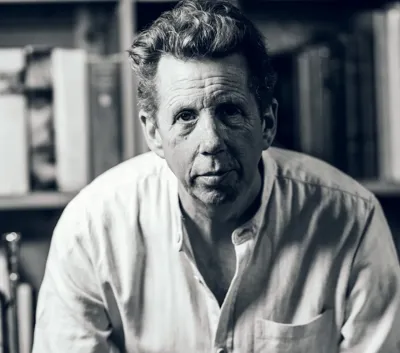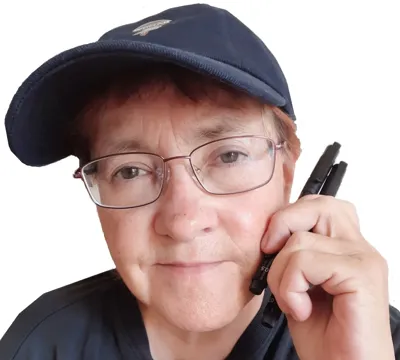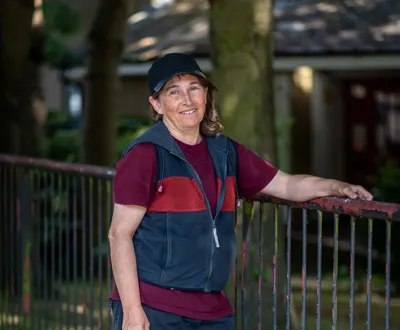“I didn’t realise for a very long time that I’d been a carer” – Jonathan’s story
06/06/2025
Jonathan supported his mother with various mental health conditions since childhood, but only recently realised he was her carer. He now works with our Rethink Companions service, supporting carers to lead fulfilling lives.
I grew up in a uniquely unhappy family, which as it turns out, is not an unusual experience. My mother had a lifelong mental health problem, treated by various mental health professionals and systems over many years. Diagnosis was vague, usually something around depression, anxiety, mood disorder and alcohol use. If she was being supported today, I would think a diagnosis of emotionally unstable personality disorder (EUPD) would be the closest descriptor.
What we saw as a family, was someone whose mood could rapidly change, with no apparent reason. A creative and intelligent person who found it hard to find any consistent expression for their talents, who could make friendships with great enthusiasm but couldn’t maintain them.
My dad described the home atmosphere as ‘walking on eggshells’ because you’d never know what to expect. A sunny, positive and fun day could explode in a storm of anger, frustration, petty slights and verbal abuse. You wouldn’t know how long things might last – a day, weeks or months. She could leave the home to set up a new life only to return months later.
-
I now know that I’ve carried an immense amount of guilt from a young age
When my mum’s mood calmed and was more stable, she seemed to have no insight or recollection. It seemed to her that it was other people who had the problem. I guess this is where friendships and professional life often became difficult. Anything that required consistency was a great challenge to her. It was a continual cycle of being super positive and energised, then disappointed and rejected.
I also believe her dependence on alcohol grew from an attempt to self-medicate and flatten the rollercoaster cycle of moods. The result, of course, brought more problems and became a mask for the underlying difficulties she faced.
People outside of the family often saw the good things in Mum, such as being spontaneous, unconventional, liberal and generous. She identified with the unusual and anti-hero characters of life. One of her favourite films was Harold and Maud. I’m sure she saw herself as an eccentric Maud character in her later life.
-
Carers of mental health remain a very isolated group of people
Looking back, I can see that mental health services struggled to really help my mum as they only had a partial picture. This is so often the case with mental health where you only see the tip of an iceberg. When someone is overwhelmed by their experience, and is perhaps frightened and confused, it asks an awful lot for them to trust the mental health system. Although there is more talk about mental health now, misconception and stigma remains. This acts as a block to people finding help and having open conversations. Stigma can equally affect the carers or family members, too.
I didn’t realise for a very long time that I’d been a carer. I worked in the mental health system for years, without really acknowledging this fact. Carers were not valued; in some cases, seen as part of the problem. How different things could have been if a more whole or ‘holistic’ view could have been taken.
I now know that I’ve carried an immense amount of guilt from a young age. Why did Mum leave? Why is Mum so unhappy? Why can’t I make things or people better? My own feelings became subjugated in an atmosphere of someone else’s highly expressed or inappropriate emotion. I had real problems in acknowledging or even recognising my own feelings. I became depressed, and remember staring at myself intensely in a mirror with no recognition of the figure that looked back.
Carers of mental health remain a very isolated group of people. The single thing that has helped me the most has been meeting other carers. This happened by accident when I started to work with carers at Rethink Mental Illness. As I facilitated a course for carers to come together, with the aim of finding acceptance, knowledge and ways to better cope, I began to realise that I was learning as much as anyone else in the room. Sure, I’d worked in mental health for years, but this only told me so much. The really important learning is about who we are as people, our stories and how things might be better.



